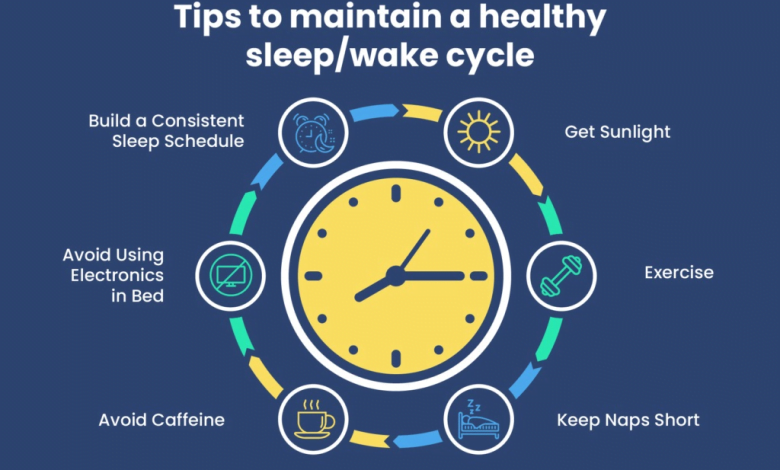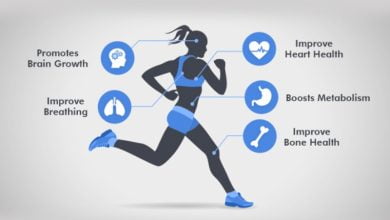Unlocking the Secrets of Circadian Rhythms: A Comprehensive Guide to Understanding Your Body’s Internal Clock

Introduction
Unraveling the Mysteries of Circadian Rhythms: The Biological Symphony of Life:
In the symphony of life, circadian rhythms compose the delicate melody guiding our daily existence. These intrinsic biological rhythms orchestrate the ebb and flow of our physiological processes, synchronizing them with the rhythm of the day-night cycle. From sleep-wake patterns to hormone secretion and metabolism, circadian rhythms play a fundamental role in regulating numerous aspects of human biology. In this comprehensive exploration, we embark on a journey to understand the intricacies of circadian rhythms, their mechanisms, significance, and impact on health and well-being.
Understanding Circadian Rhythms:
Definition and Origins:
Circadian rhythms derive from the Latin words “circa” (about) and “diem” (day), reflecting their approximately 24-hour cycle. These rhythms are endogenously generated by the body’s internal clock, primarily located in the suprachiasmatic nucleus (SCN) of the hypothalamus. While the SCN serves as the master pacemaker, other peripheral clocks located in various tissues and organs contribute to the regulation of circadian rhythms.
Regulation by Light:
Light serves as the primary external cue, or zeitgeber, for synchronizing circadian rhythms with the 24-hour day. Specialized cells in the retina, containing the photopigment melanopsin, transmit light information to the SCN via the retinohypothalamic tract. Light exposure inhibits melatonin secretion from the pineal gland, promoting wakefulness and resetting the internal clock.
Molecular Mechanisms:
At the molecular level, circadian rhythms are governed by a complex network of clock genes and proteins. The core molecular clock consists of transcription-translation feedback loops involving genes such as CLOCK, BMAL1, PER, and CRY. These genes undergo rhythmic expression, driving oscillations in cellular processes and physiological functions.
Sleep-Wake Regulation:
Circadian rhythms synchronize the timing of sleep and wakefulness, promoting alertness during the day and sleep at night. The SCN coordinates the timing of sleep through its projections to brain regions involved in arousal and sleep-wake regulation, including the thalamus, hypothalamus, and brainstem nuclei.
Influence on Physiology:
Circadian rhythms exert profound effects on various physiological processes, including metabolism, hormone secretion, immune function, and cardiovascular activity. These rhythms optimize physiological function and energy utilization according to the time of day, promoting health and survival.
Impact of Circadian Rhythms on Health and Well-Being:
Sleep Disorders:
Disruption of circadian rhythms contributes to sleep disorders such as insomnia, delayed sleep phase disorder, and shift work disorder. Irregular sleep-wake schedules, jet lag, and night shift work can desynchronize circadian rhythms, leading to sleep disturbances and impaired daytime functioning.
Metabolic Health:
Circadian misalignment is associated with metabolic disturbances, including obesity, insulin resistance, and dyslipidemia. Disrupted circadian rhythms alter the timing of food intake, hormone secretion, and metabolic processes, contributing to metabolic dysfunction and increased risk of chronic diseases.
Mood and Mental Health:
Circadian rhythms influence mood regulation and mental health outcomes. Circadian disruption is linked to mood disorders such as depression and bipolar disorder, as well as cognitive impairments and increased susceptibility to stress-related disorders.
Immune Function:
Circadian rhythms regulate immune function, modulating the timing of immune cell activity, cytokine production, and inflammatory responses. Circadian disruption compromises immune defense mechanisms, increasing susceptibility to infections and autoimmune diseases.
Longevity and Aging:
Circadian rhythms play a role in regulating the aging process and lifespan. Dysregulated circadian rhythms are associated with accelerated aging and age-related diseases. Maintaining robust circadian rhythms through lifestyle interventions may promote healthy aging and longevity.
Strategies for Optimizing Circadian Rhythms:
Light Exposure:
Exposure to natural light during the day and minimizing exposure to artificial light at night helps synchronize circadian rhythms with the external environment. Daylight exposure upon waking and dimming lights before bedtime can enhance sleep quality and circadian alignment.
Consistent Sleep-Wake Schedule:
Maintaining a regular sleep-wake schedule, even on weekends, reinforces circadian rhythms and promotes better sleep quality. Consistency in bedtime and wake time helps regulate the timing of physiological processes and optimize circadian function.
Healthy Lifestyle Habits:
Adopting healthy lifestyle habits, including regular exercise, balanced nutrition, and stress management, supports circadian health. Physical activity during the day promotes daytime alertness and consolidates sleep at night, while relaxation techniques reduce stress and facilitate relaxation before bedtime.
Sleep Hygiene Practices:
Practicing good sleep hygiene, such as creating a comfortable sleep environment, limiting caffeine and alcohol consumption, and establishing a relaxing bedtime routine, promotes restorative sleep and enhances circadian regulation.
Chronotherapy:
Chronotherapy involves timing interventions, such as light exposure, medication administration, and meal timing, to align with circadian rhythms. Tailoring treatments according to individual circadian preferences and chronotype may optimize therapeutic outcomes and improve health outcomes.
Conclusion:
Circadian rhythms serve as the temporal orchestrators of human biology, coordinating physiological processes with the rhythmicity of the day-night cycle. Understanding the mechanisms underlying circadian regulation is essential for optimizing health, well-being, and performance. By embracing strategies to support circadian health, individuals can synchronize their internal clocks with the external environment, promoting vitality, resilience, and longevity in the symphony of life.
Navigating the Balance: Exploring the Intricacies of Sleep-Wake Regulation
Introduction:
In the intricate dance of life, the regulation of sleep and wakefulness serves as a crucial rhythm, orchestrating our daily activities and ensuring optimal functioning. This delicate balance between restorative sleep and wakeful alertness is governed by a complex interplay of physiological, neurological, and environmental factors. In this in-depth exploration, we embark on a journey to unravel the mechanisms underlying sleep-wake regulation, understanding its significance, and exploring the implications of its disruption on human health and well-being.
Understanding Sleep-Wake Regulation:
Circadian Rhythms:
Central to the regulation of sleep-wake cycles are circadian rhythms, the body’s internal clock synchronized with the 24-hour day-night cycle. The suprachiasmatic nucleus (SCN) in the hypothalamus serves as the master pacemaker, coordinating the timing of sleep and wakefulness based on external cues, primarily light-dark cycles. Circadian rhythms influence the timing of sleep onset, duration, and quality, ensuring alignment with the natural rhythms of the environment.
Homeostatic Mechanisms:
Sleep-wake homeostasis maintains a balance between sleep and wakefulness based on the body’s need for rest. Adenosine, a neurotransmitter accumulating in the brain during wakefulness, promotes sleep pressure. As adenosine levels rise, the urge to sleep increases. Sleep dissipates adenosine, resetting the sleep-wake cycle and promoting wakefulness upon awakening.
Neurotransmitters and Hormones:
Various neurotransmitters and hormones modulate sleep-wake regulation. Neurotransmitters such as serotonin, dopamine, and norepinephrine promote wakefulness, while gamma-aminobutyric acid (GABA) and melatonin facilitate sleep onset and maintenance. Hormones like cortisol, growth hormone, and prolactin also influence sleep-wake patterns, regulating physiological processes throughout the sleep-wake cycle.
Brain Structures:
Multiple brain structures, including the thalamus, basal forebrain, and brainstem nuclei, play integral roles in sleep-wake regulation. The thalamus relays sensory information to the cortex, facilitating arousal during wakefulness. The basal forebrain promotes sleep onset by inhibiting wake-promoting regions, while brainstem nuclei regulate arousal, muscle tone, and rapid eye movement (REM) sleep.
Sleep Architecture:
Sleep consists of distinct stages characterized by specific electroencephalographic (EEG) patterns and physiological changes. Non-rapid eye movement (NREM) sleep comprises stages N1, N2, and N3, each serving unique functions in bodily restoration and consolidation of memory and learning. REM sleep, marked by rapid eye movements and vivid dreaming, is crucial for emotional processing and cognitive function.
Impact of Sleep-Wake Regulation on Health and Functioning:
Cognitive Function:
Adequate sleep is essential for cognitive processes such as attention, memory, learning, and problem-solving. Sleep deprivation impairs cognitive performance, leading to deficits in concentration, decision-making, and creativity. Chronic sleep disruption is associated with cognitive decline and increased risk of neurodegenerative diseases.
Emotional Regulation:
Sleep plays a critical role in emotional regulation and resilience. Insufficient sleep disrupts emotional processing, increasing susceptibility to mood disorders such as depression and anxiety. REM sleep, in particular, is essential for emotional memory consolidation and regulation of emotional responses.
Physical Health:
Sleep regulates various physiological processes, including metabolism, immune function, and cardiovascular health. Chronic sleep deprivation is linked to obesity, diabetes, hypertension, and increased risk of heart disease and stroke. Sleep disturbances disrupt the body’s ability to repair and regenerate tissues, compromising overall health and longevity.
Immune Function:
Sleep is essential for immune function, promoting the production of cytokines and immune cells that defend against infections. Inadequate sleep compromises immune response, increasing susceptibility to viral infections, bacterial pathogens, and inflammatory disorders. Sleep deprivation can exacerbate existing health conditions and impair recovery from illness.
Hormonal Balance:
Sleep influences hormonal balance, regulating appetite, stress response, and reproductive function. Disrupted sleep patterns alter hormone secretion, contributing to metabolic disturbances, mood disorders, and reproductive dysfunction. Hormonal dysregulation associated with sleep disturbances may exacerbate chronic health conditions and impair overall well-being.
Regulation of Sleep-Wake Cycles: Challenges and Solutions:
Environmental Factors:
Modern lifestyles characterized by artificial light exposure, irregular work schedules, and electronic devices disrupt natural sleep-wake cycles. Creating a sleep-friendly environment, practicing good sleep hygiene, and limiting exposure to stimulating activities before bedtime can help regulate sleep-wake patterns.
Sleep Disorders:
Sleep disorders such as insomnia, sleep apnea, restless legs syndrome, and circadian rhythm sleep-wake disorders disrupt sleep-wake cycles and impair daytime functioning. Diagnosis and treatment of underlying sleep disorders are essential for restoring healthy sleep patterns and improving overall quality of life.
Stress Management:
Chronic stress activates the body’s stress response system, disrupting sleep-wake regulation and exacerbating sleep disturbances. Stress management techniques such as relaxation exercises, mindfulness meditation, and cognitive-behavioral therapy can alleviate sleep-related stress and promote relaxation before bedtime.
Lifestyle Modifications:
Adopting healthy lifestyle habits, including regular exercise, balanced nutrition, and stress reduction techniques, supports sleep-wake regulation and enhances overall well-being. Establishing a consistent sleep schedule, prioritizing relaxation before bedtime, and avoiding stimulants such as caffeine and nicotine can improve sleep quality and duration.
Chronotherapy:
Chronotherapy involves timing interventions, such as light exposure, medication administration, and behavioral interventions, to align with the body’s natural sleep-wake cycles. Tailoring treatment strategies according to individual circadian preferences and chronotype may optimize therapeutic outcomes and promote better sleep-wake regulation.
Conclusion:
Sleep-wake regulation is a multifaceted process influenced by intricate physiological mechanisms and environmental factors. Understanding the science of sleep-wake regulation is essential for optimizing health, well-being, and cognitive performance. By prioritizing sleep hygiene, addressing sleep disorders, and adopting healthy lifestyle habits, individuals can cultivate restorative sleep patterns conducive to overall health and functioning in the dynamic rhythm of life.
Introduction to Circadian Rhythms:
Our bodies have an incredible natural clock that regulates various biological processes, known as circadian rhythms. These rhythms control our sleep-wake cycle, hormone production, body temperature, and other essential functions. Understanding circadian rhythms is crucial because they play a vital role in our overall health and well-being.
What are Circadian Rhythms and Why are They Important?
Circadian rhythms are 24-hour internal biological cycles that regulate our body’s physiological and behavioral processes. They are influenced by external cues, such as light and darkness, and help us maintain a stable internal environment. These rhythms are controlled by a tiny cluster of cells in the brain called the suprachiasmatic nucleus (SCN), which acts as the body’s master clock.Circadian rhythms are essential for various reasons. They help us maintain regular sleep patterns, regulate hormone production, and optimize bodily functions. When our circadian rhythms are disrupted, it can lead to sleep disorders, mood disturbances, and even chronic health conditions. Understanding and aligning with our circadian rhythms can significantly improve our overall well-being.
How Circadian Rhythms Affect Our Daily Lives
Circadian rhythms influence almost every aspect of our daily lives. They determine our sleep patterns, energy levels, and even the times when we feel most alert and productive. Have you ever noticed that you tend to feel drowsy around the same time every evening or experience a mid-afternoon slump? These are examples of circadian rhythms at work.Our circadian rhythms also affect our cognitive abilities, memory, and decision-making. Research has shown that our mental performance is at its peak during our body’s natural wakeful hours. By understanding our circadian rhythms, we can optimize our daily routines to align with these periods of heightened mental alertness and productivity.
The Science Behind Circadian Rhythms
The science behind circadian rhythms is fascinating. Our body’s master clock, the suprachiasmatic nucleus (SCN), receives signals from light-sensitive cells in the eyes, which help regulate the release of melatonin, a hormone that promotes sleep. When exposed to light, the SCN signals the brain to reduce melatonin production, keeping us awake and alert. As darkness sets in, melatonin levels rise, signaling the body to prepare for sleep.Another critical player in the science of circadian rhythms is the hormone cortisol. Cortisol levels follow a distinct pattern throughout the day, peaking in the morning to help us wake up and gradually declining as the day progresses. This natural cortisol rhythm helps regulate our energy levels and promotes a healthy sleep-wake cycle.
Understanding the Role of Light in Regulating Circadian Rhythms
Light is a significant influencer of our circadian rhythms. Exposure to natural light during the day helps regulate our body’s internal clock, promoting alertness and wakefulness. Conversely, exposure to bright artificial light at night can disrupt our circadian rhythms, making it difficult to fall asleep and stay asleep.To optimize our circadian rhythms, it is essential to expose ourselves to natural sunlight during the day and minimize exposure to artificial light, particularly in the evening. This means limiting our use of electronic devices, such as smartphones and tablets, before bed and creating a sleep environment that is dark and conducive to restful sleep.
The Impact of Disrupted Circadian Rhythms on Health and Well-being
Disrupted circadian rhythms can have a profound impact on our health and well-being. Chronic sleep disturbances, such as insomnia or sleep apnea, can disrupt our body’s natural rhythm, leading to daytime fatigue, decreased cognitive function, and even increased risk of chronic health conditions like obesity, diabetes, and cardiovascular disease.Moreover, disrupted circadian rhythms have been linked to mental health disorders, including depression, anxiety, and bipolar disorder. The delicate balance between our internal clock and our mental well-being is crucial, and any disruptions can have far-reaching consequences.
Tips for Aligning Your Circadian Rhythms for Optimal Health
Aligning with our circadian rhythms is essential for optimal health. Here are some tips to help you regulate your body’s internal clock:
Establish a consistent sleep schedule:
Go to bed and wake up at the same time every day, even on weekends.
Create a sleep-friendly environment:
Make sure your bedroom is cool, dark, and quiet to promote restful sleep.
Limit exposure to artificial light at night: Avoid using electronic devices before bed and consider using blackout curtains or an eye mask.
Get regular exercise:
Physical activity during the day can help regulate your circadian rhythms and promote better sleep.
Practice relaxation techniques:
Engage in activities like meditation or deep breathing to reduce stress and promote better sleep.
How to Create a Sleep Routine that Supports Your Circadian Rhythms
Creating a sleep routine that supports your circadian rhythms is vital for getting quality sleep. Here’s how you can establish a sleep routine that aligns with your body’s internal clock:
Determine your ideal sleep schedule:
Identify the times when you naturally feel tired and aim to go to bed and wake up at those times consistently.
Wind down before bed:
Establish a relaxing bedtime routine that includes activities like reading, taking a warm bath, or practicing gentle stretching.
Avoid stimulants and large meals before bed:
Caffeine, nicotine, and heavy meals can interfere with your ability to fall asleep and stay asleep.
Create a sleep-friendly environment:
Make sure your bedroom is free from distractions, comfortable, and conducive to sleep.
Natural Methods for Regulating Circadian Rhythms
While light exposure is the most potent regulator of circadian rhythms, there are other natural methods that can help regulate your body’s internal clock:
Practice light therapy:
Light therapy involves using a special light box that mimics natural sunlight to regulate circadian rhythms, particularly for individuals with seasonal affective disorder (SAD) or shift work.
Follow a regular meal schedule:
Eating regular meals at consistent times can help regulate your body’s internal clock and promote better sleep.
Engage in regular exercise:
Exercising during the day can help regulate your circadian rhythms and promote better sleep at night.
The Relationship Between Circadian Rhythms and Mental Health
Circadian rhythms and mental health are closely interconnected. Disrupted circadian rhythms can contribute to the development and exacerbation of mental health disorders, while maintaining a healthy sleep-wake cycle can positively impact mental well-being.Research has shown that individuals with mood disorders, such as depression and bipolar disorder, often have disrupted circadian rhythms. By understanding the relationship between circadian rhythms and mental health, healthcare professionals can develop targeted interventions to improve both sleep and mental well-being.
Circadian Rhythms and Shift Work: Challenges and Solutions
Shift work can significantly disrupt circadian rhythms, as it requires individuals to be awake and active during times when their body naturally desires sleep. This can lead to sleep disturbances, increased risk of accidents, and a range of physical and mental health issues.
To mitigate the challenges of shift work, individuals can try implementing strategies such as:
Establishing a consistent sleep schedule, even on days off.
Creating a sleep environment that is conducive to restful sleep, such as using blackout curtains or earplugs.
Minimizing exposure to artificial light during nighttime shifts and wearing blue-light blocking glasses.
Seeking support from healthcare professionals, such as sleep specialists or occupational health experts.
Conclusion: Embracing and Enhancing Your Body’s Internal Clock
Understanding and embracing our body’s internal clock, or circadian rhythms, is crucial for optimal health and well-being. By aligning our daily routines with our natural cycles, we can optimize sleep, enhance cognitive function, regulate hormone production, and improve overall physical and mental health. Embrace the secrets of circadian rhythms, and unlock the true potential of your body’s internal clock.
CTA:
Take charge of your circadian rhythms today and prioritize your sleep and well-being. Make small changes to your daily routine, such as establishing a consistent sleep schedule and creating a sleep-friendly environment. Remember, your body’s internal clock is a powerful tool that can enhance your overall health and vitality.




